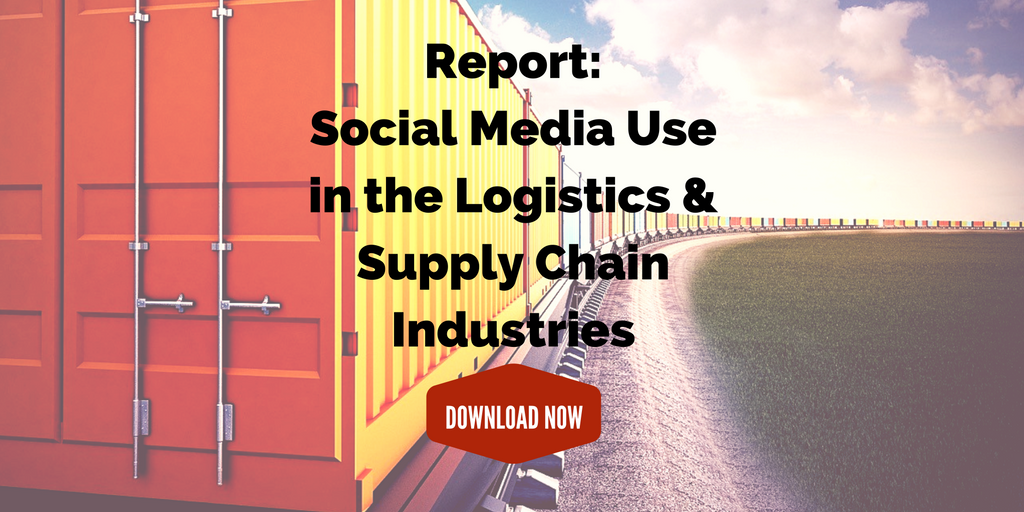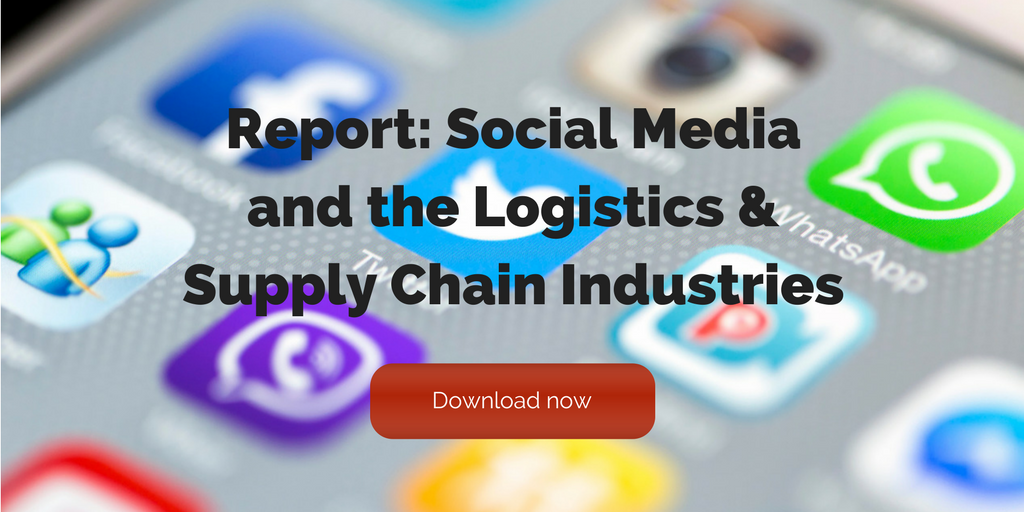
by Fronetics | Dec 15, 2016 | Blog, Content Marketing, Logistics, Marketing, Social Media, Supply Chain
Here are our 10 most-read social media posts of 2016.
Social media is no longer optional. Today, B2B and B2C companies need to be active on social media. Companies that aren’t are making a strategic mistake that will impact their bottom line.
At Fronetics we work with companies to create and execute social media strategies. Moreover, we serve as an educational resource for companies within the logistics and supply chain industry.
Here are the 10 most-read posts about social media from our blog in 2016.
A question we often get here at Fronetics is: How often should my business tweet? We explore this question and give you an answer. Read more.
Facebook Live offers businesses a new, creative platform for engaging customers — here’s how to use it. Read more.
When it excels at social media, a company’s opportunity for growth is as vast as the web itself. Today, even small businesses can compete shoulder to shoulder with their biggest competitors if leveraging social media properly. These four supply chain companies constantly post fresh, quality content to their social media accounts. Read more.
Social media facts collected from various studies, offer insight into how people and businesses are using social networking today. Read more.
Censorship is always a hot-button issue, and, when combined with social media, things can heat up even more. The topic is debated in law school classrooms, at dinner parties, and in courtrooms. What should be shared and written on social media? Should companies censor what their employees post? Read more.
One of the top social media sites for B2B marketers, Twitter can help businesses spread brand awareness and communicate with customers. Read more.
A cross-departmental social media team will improve your company’s social presence. Read more.
This is a guest post written by Tania Seary, founder of Procurious, the world’s first online social network for supply chain and procurement professionals. In the post Seary shares how Procurious has used social media to build Procurious. Read more.
When you are posting on social media could be as important as what you’re posting. Read more.
If your company is not participating in social media, you are at a disadvantage. Your customers, your employees, and your competitors are taking advantage of these technologies to conduct business in new, more efficient ways. Read more.


by Fronetics | Nov 30, 2016 | Blog, Content Marketing, Logistics, Marketing, Social Media, Supply Chain
Companies within the logistics and supply chain industries are increasing customer engagement, market and business intelligence, leads, and more by participating in social media.
Results from a previous Fronetics survey tell us that 100% of responding companies in the logistics and supply chain industries consider social media a strategic tool. So how are they using these platforms, and what benefits are they getting from participating?
Below, find some highlights from that survey.
By the way, if you’re interested in how companies in these industries are using social media, take our latest survey so that we can provide you with the latest results and trends. It takes about 3 minutes, and we’ll send you the new report once it’s completed.

Social media networks popular with the supply chain
According to the survey, the most popular networks are as follows.
- Twitter (94%)
- LinkedIn (86%)
- Facebook (77%)
YouTube (50%) and Google+ (45%) are networks which are also commonly used within the supply chain and logistics industries.
Reasons for using social media
Companies reported participating in social media for the following reasons.
- Increasing the visibility of their company (95%)
- Brand image (90%)
- Establishing the company as a thought leader (86%)
- Attracting new leads and customers (82%)
Top benefits realized from social media participation
Companies reported the following benefits.
- Customer engagement: 80% of respondents reported that they agree or strongly agree that by participating in social media, their company has realized an increase in customer engagement.
- Market intelligence: 80% of respondents also reported that they agree or strongly agree that their company has realized an increase in market intelligence.
- Business intelligence: 73% responded that they agree or strongly agree that their company has realized increased business intelligence through participation in social media.
Other top benefits included increased leads and increased demand for products and services.
You can download the full report below for more information on how your industry peers are using social media. And don’t forget to participate in our new survey so that we can send you the latest information.

Related posts:

by Fronetics | Nov 14, 2016 | Blog, Content Marketing, Logistics, Manufacturing & Distribution, Marketing, Social Media, Supply Chain, Transportation & Trucking, Warehousing & Materials Handling
Fronetics is conducting a survey to determine the benefits and challenges of social media for companies in these industries.
Two years ago, Fronetics surveyed a number of individuals working in the logistics and supply chain industries, including those employed by manufacturing, warehousing, and transportation companies. The survey’s goal was to find out how these companies were using social media, and if they were realizing any benefits or encountering any challenges by participating.
Interestingly, 100% of respondents reported having used social media for 5 years or less. Despite this relatively short implementation period, the majority (68%) said that their companies had already realized benefits from participation — primarily increased engagement with customers, increased market intelligence, and increased business intelligence.
As things go in the technology space these days, social media looks quite different than it did two years ago. What’s more, companies in these industries have, presumably, been using these tools for longer. Have a better understanding of social platforms and more opportunities for businesses impacted the benefit to users?
Fronentics is conducting a new survey to find out. We invite individuals working in the warehousing, manufacturing, and transportation industries — or those in other supply chain and logistics fields — to participate.
The survey takes about 3 minutes to complete. Responses will be reported in aggregate, and no identifiable information (individual or company) will be shared.
We look forward to hearing about your experience with social media!

Related posts:

by Fronetics | Nov 9, 2016 | Blog, Content Marketing, Marketing, Social Media
Try these content formats and related tools for B2B social media content that keeps your audience engaged.
Conventional wisdom, careful market research, and common sense are all telling us that social media is transforming the way we do business. We know we should be leveraging these platforms to drive awareness, engagement, and revenue for our businesses. But creating content to share with your audience is actually more difficult than it sounds.
Character limits and the increasingly visual nature of these platforms means marketers are having to get creative with how they engage their audience. Here are four ideas and related tools that can help B2B organizations produce interesting, informative content that is suited to social media.
1) Video
The 2016 Social Media Marketing Industry Report rates the growing prevalence of video among its top findings for the year. It found that 60% of marketers are now using video in their marketing, and 73% are making it a goal to increase their use of video. This trend is for good reason — 64% of business that use video reported that it has led directly to increased sales.
Video is an efficient, visually appealing way to present your content in an imminently shareable format. Here are some online tools to help you create effective video content for your business.
- PowToon: A tool that guides users through the creation of animated videos and presentations, PowToon boasts an approachable interface and minimalist design that makes it simple for marketers with limited video experience.
- Magisto: Ideal for creating videos with emotional impact, Magisto features tutorials on creating video for your business, and allows users to create highly customizable video content through a simple interface.
- WeVideo: Featuring advanced video-editing tools with a simple interface, WeVideo is a cloud-based collaborative video editor that allows users the convenience of cloud video storage.
- Wideo: Allowing you to create videos in minutes, Wideo offers a variety of plans aimed toward working with your existing marketing strategy.
Creating your video is just the first step. Here are some places to upload and share your content:
- YouTube: The titan of video sharing services, YouTube allows for public and private upload, and gives users free access to analytics tools for their videos. Along the way, take a look at these valuable tips for getting more views on your YouTube videos.
- Vimeo: With a similar platform to YouTube, Vimeo is ideal for video sharing, discovery, and generating creativity.
2) Infographics
Social media platforms are becoming increasingly visual. A well-designed infographic makes your content visually appealing and delivers your message in a clear, easily digestible format. A recent report from eMarketer and the communications firm Lewis found the demands of social media and the format’s high engagement rates are key reasons for its use.
Here are some online resources that let you create and share infographics:
- ly: This site features a vast array of templates, which you can easily edit and customize and share immediately on social media platforms.
- Piktochart: With an easy-to-navigate interface, Piktochart allows you to create intricate, design-rich graphics, complete with icons, images, charts, and interactive maps, and publish them directly to social media platforms.
- Canva: This site allows for quick creation of infographics, as well as presentation covers, social media images, online advertisements, and flyers.
- Visme: A simple interface, Visme allows you to translate your ideas into engaging infographics, presentations, reports, and more. You can share your content online as a URL or on social media, embed it on your website, or download it.
3) Podcasts
The 2016 SME Report identifies podcasting as a relatively untapped way for marketers to engage with social media audiences. The audience for podcasts in the United States alone is close to 60 million people, making this medium a significant opportunity for businesses to engage with potential clients.
Here are some tools that can help you create quality audio content:
- Audacity: This open-source audio software lets you record audio, convert tapes and records into digital recordings, and add your own audio effects.
- Podbean: This tool lets you quickly create and share professional podcasts, no programming knowledge necessary. You can publish them directly to social media platforms.
4) Slides
If you have a lot of dense, industry-specific content that you want to get out to your audience, presentations are ideal. Breaking up your content into slides lets you get the information to your network in an engaging and visually appealing way.
Here are some tools that help you create and share professional presentations:
- SlideShare: LinkedIn’s platform lets you build, upload, and edit presentations, and share them on social media.
- SlideBoom: Ideal for converting PowerPoint presentations to Flash, SlideBoom lets you share your presentations with your target audience.
- Prezi: This tool is available for download or as an online editor, and it allows you to add animations to your presentations and share your content on Twitter, Facebook, and LinkedIn.
Social media has changed the way businesses engage with their target customer base. Embracing these tools is key to creating and maintaining an active and loyal audience.
Related posts:


by Fronetics | Nov 7, 2016 | Blog, Content Marketing, Logistics, Marketing, Social Media, Supply Chain
Fronetics is conducting a survey to determine how companies in the logistics and supply chain industries are using content and social media.
Have you ever wondered how your competitors, customers, and business partners are using modern marketing tools like social media? Are you curious how many companies like yours have a blog, how often they publish, and, more importantly, how many are generating new business from it?
Fronetics was curious about these questions and more. So we conducted our first industry-wide survey back in 2014 to learn how logistics and supply chain companies were using content and social media as part of their marketing programs.
The results were very telling. Though all reported leveraging these tools for only a short while, the majority had already seen a positive impact on their business. To read the full reports, click below.
Well, a lot has happened in two years. And, once again, Fronetics would like to take the temperature of the industry to see how the use of social media and content has changed (or stayed the same). So we are launching a new survey for individuals working in the logistics and supply chain industries to weigh in on how their companies are using these tools today.
Each survey takes about 3 minutes to complete. Results will be reported in aggregate, using no personal or company information from respondents. Those wishing to receive the completed report can indicate this preference during the survey.
Please click the buttons below to take our surveys. We look forward to hearing your responses!


Related posts:









